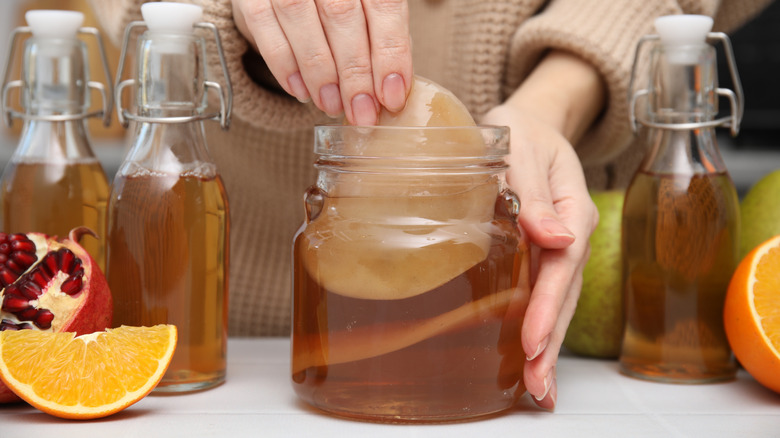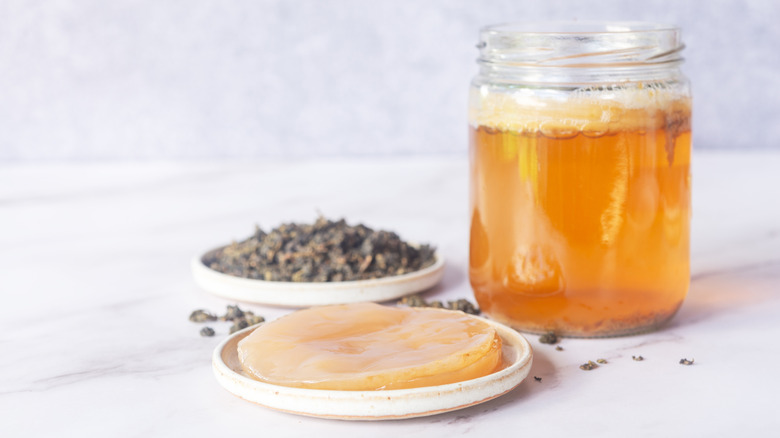How Long To Ferment Your Homemade Kombucha For The Best Flavor
We may receive a commission on purchases made from links.
As any homebrewer knows well, the biggest tradeoff when making your own kombucha is time. Don't get us wrong, we think it's well worth it, but grabbing a bottle of premade buch from the store takes minutes, while crafting a batch of the good stuff at home takes...how long, exactly?
Emma Christensen, a homebrewing expert and author of the upcoming book "Hard Seltzer, Iced Tea, Kombucha, and Cider," says there's no one-size-fits-all rule for nailing a knockout brew. "Ferment kombucha for at least five days or up to about three weeks," she recommends. "The shorter you ferment, the sweeter the taste; the longer you ferment, the more tart or sour the taste." That's a pretty wide window, but it allows brewers to customize their kombucha to their desired flavor profile.
Fermentation is the process responsible for creating that sweet-sour-tangy flavor and fizzy mouthfeel signature to kombucha. The SCOBY interacts with the sugars in the sweetened brewed tea to form acetic and gluconic acid, natural probiotics, antioxidants, and beneficial enzymes. To achieve the most dimensional, balanced, and overall delicious flavor, successful homemade kombucha largely comes down to the fermentation duration."If you're new to making kombucha," Christensen explains, "I recommend letting it ferment undisturbed for five days and then tasting it daily until you like the flavor (you can just pour a small amount into a glass right from the fermentation container)."
Taste test daily starting on day five
Kombucha fermentation is aerobic (meaning it's no biggie if air gets in), so feel free to take off the lid. On the fifth day of fermentation, taste-test your brew by pouring out a small glass or inserting a straw underneath the surface SCOBY. If it tastes too sweet, give it a few more days. You want to give those good bacteria enough time to do their thing, but not so long that the batch over-ferments and turns sour. "For me," Emma Christensen says, "I find 10 days to be the perfect fermentation time for my kombucha."
Beyond your own taste preference, temperature is also going to determine where within that one-to-three-week range your fermentation duration falls. Once you've brewed the sweet tea and added the SCOBY to the jar, your baby kombucha should always be stashed away from direct sunlight to ferment. But, if you happen to live in a warm region (or it's peak summertime), that kombucha is going to ferment much more quickly under the higher temperature than it would in a colder region, or during winter. The same gallon-sized brew that ferments in just 10 days during July might take two weeks or more to achieve the same sour-tangy taste in February. To expedite the process, feel free to enlist the help of a heating mat, like this one by NHKRTE. Kombucha is happiest fermenting between 75 to 85 degrees Fahrenheit.

